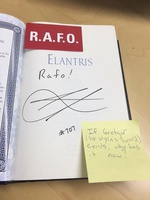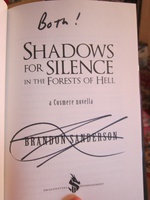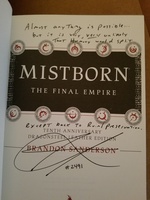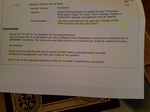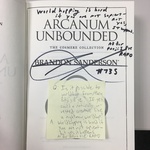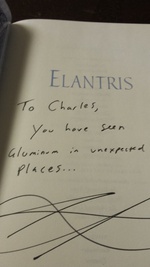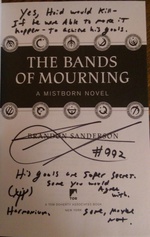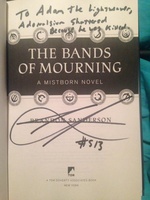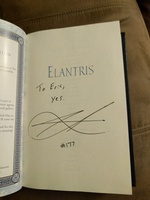Brandon Sanderson
This initial section, with Tresting and the Obligator, was added during one of the last drafts of the book. I had some troubles starting this novel. I really liked the Kelsier section of the prologue (which was originally the first chapter.) However, before I got to Kelsier, I wanted to have a kind of scene-setting omniscient description of the skaa working.
The important part of this zoom out would have been to show them all with heads bowed, then show Kelsier look up and smile. I tried several drafts of this, and eventually settled on something that was okay. Later on, however, I decided that it was just too much of a viewpoint error to have an omniscient section in one of my books, especially since it was the first section of the novel. So, I decided to set the scene from Tresting's viewpoint.
Once I changed that, I like how this scene turned out. However, it does mean that the very first viewpoint that you see in the book is that of a passing villain who doesn't really matter very much. I guess that's all right, but it's part of the reason I moved this back to being the prologue–I think that gives more of an indication that the characters introduced aren't necessarily the main characters of the book.
Other than that, I liked how this scene let me introduce some of the world elements–obligators, Inquisitors, the ash, the nobility, and the Lord Ruler–in a quick, easy way. Plus, I got to have the scene with Kelsier looking up and smiling, which always gives me a bit of a chill when I read it.

